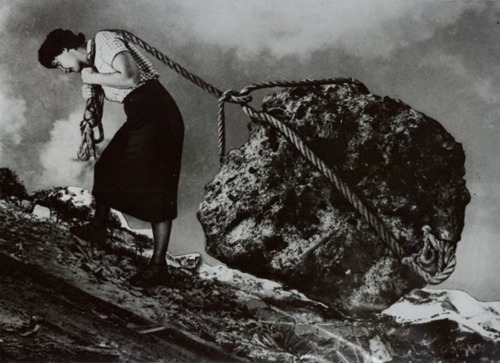 Western culture loves the idea of hard work. It is a given that if you want to succeed in medicine, law, business, or politics, you have to work hard. But we usually carry things too far—to the point that we become unhealthy.
Western culture loves the idea of hard work. It is a given that if you want to succeed in medicine, law, business, or politics, you have to work hard. But we usually carry things too far—to the point that we become unhealthy.
For example, children of workaholics are 72 percent more likely to suffer depression than children of alcoholics. Alcoholism and other “-holisms” have a stigma. They are diseases to be cured or at least managed. Workaholism, however, is often lauded and rewarded.
Those of us in ministry—even part-time or volunteer ministry—seem unusually susceptible to workaholism. We tell ourselves that we are sacrificing for the sake of the church or the people or Jesus. A call to ministry is a call to sacrifice, no doubt about it. But it is not a call to sacrifice our health and the relationships of those around us.
RCIA ministers teach by example
This matters for RCIA ministers. Initiation ministry is an apprenticeship process. Most of what the catechumens learn about being Christian comes from following our example. If in our catechetical sessions we talk about Jesus making our burdens light and yokes easy, while at the same time suffering from overwork and exhaustion, what are the catechumens really learning?
Of course, there is a difference between working hard and working yourself to death. But how do you know the difference? Medicine and psychology don’t have a clear answer for that yet. However here are some clues.
- If you would rather be “doing your ministry” than spending time with your spouse and kids, that’s a red flag.
- If you consider sleeping, reading, walking, laying on the beach, and other leisure activities a waste of time, you might want to reassess.
- If you have no hobbies or no “date nights” or no fun, you need to get some.
- Here is a biggie. Is your self-worth tied to the success of your ministry? If so, that’s a problem.
- Do you have any friends that are not on the RCIA team or otherwise connected to parish ministry? I hope so.
- Are you always stressed, tired, irritable, distracted, and rushed? These are not the signs of a Spirit-filled life.
Take a step back
When I first started out in ministry, I saw many of these warning signs in my life. Then one day it dawned on me that I wasn’t happy. I was lucky, I think. I saw the red flags before my life started to self-destruct. My first step was to take a day off. I went completely off the grid for 24 hours, one day a week. Usually I went camping so I could physically be away from everything. This was before wireless smart phones and tablets, so it was easier. But you get the point.
Here is the thing I had to tell myself then and I still have to tell myself. There will always be more work to do. There will never be enough hours in the day to do it all. So I plan to work hard each day, as hard as I can, until it’s time to stop.
And then I follow the example of Pope John XXIII and say, “It’s your church, Lord, I’m going to bed. I’ve done the best I can.”
How do you keep from working too hard?
What are your tips for keeping the ministry load manageable and life balanced? Please share with the rest of us.















I love teaching 6th-grade catechism. But you’re right, it’s easy to overcommit, and expect too much from people that you simply do not control. One thing I do is remind myself not to try to do it all. Leave something for the Holy Spirit to do so he can keep his job. I lead the horses to the water; the HS gets them to drink.
I liked this post so much I had to write something too: http://platytera.blogspot.com/2014/01/torque-curve.html
Just read this brief commentary and as a new RCIA team member, that is a concern that should remind myself that it is God that calls those into the faith.
Hi Anne. Thanks for signing up for this wonderful ministry. It’s important, and I’m glad you are stepping up. Let us know if there is anything we can do to help.
Spot on, Nick. I’m printing the “clues” and keeping them around! It is SO easy for us to fall into a pit with the rest of the the corporate workaholics. When it comes to the Church, often at the base of it, is a sort of very subtle self-righteous pride. Sure we need to lead by example, we need to care deeply, we need to go the second mile for our RCIA (and other) ministries, but who are we doing it for? It should be “In His Name and in His Honor.” It is very insidious, this covert pride in being recognized as a “pillar of the Church” syndrome, and religious workaholics are prime targets.
I would add a positive “clue.” When you know you have done your best and peace wraps you before sleep, you know you’re on the right track. The rest of what you have been unable to complete you need to accept in humility as yet another example of your humanity. That part you leave in Jesus’ loving hands.
Hi Pat. What a terrific positive clue! Thanks for a great insight. Keep up the great work (but don’t work too hard!).
Nick, this is such practical advice that you have shared with us. I believe that the key to any ministry is to remember that the ministry is not ours – all ministry is the Lord’s and we are privileged to participate. Our role is to listen to God and to the people whom God has sent to us. In 1 Thess 5:16-17 Paul advises us to “Rejoice always, pray constantly”. When we do that, we are better able to leave the ministry in God’s hands.
Hi Lynda. Thanks for your comment. I love that scripture quote! I think if we just spent more time rejoicing, life would be a lot more fun.
Right you are, Lynda. We should never forget that it is the Lord’s work… and both an honor and great joy to be healthy and bright enough to be a part of it!
It sounds ultra-practical, but it helps to set healthy boundaries by having a written job description that you and your “boss” signs off on. If everyone’s on that page, then you know what “extra mile” to walk and can gear yourself up for it by staying “hydrated” on the way.
Also, do what gives you life when you start feeling worn down, similar to Nick’s camping expeditions. Regular rest, physical exercise, prayer, life-giving activities, and doing a lot of listening (to the Holy Spirit) and those around you you trust, all help. That listening helps us know what to tackle in ministry and what needs to be navigated around and let go.
Randy, you are so right about having a written job description. When I was in full-time parish ministry, it was almost a badge of honor among the staff to say that our job descriptions didn’t really describe our jobs. That is another red flag. Job descriptions should be as clear and accurate as possible. This is also true for volunteers. Every volunteer should have a written job description, for the very reasons you cite. Thanks a great reminder!
The first 3 years were very stressful, the last 9 have been awesome! I created my own personal file system for each Sunday of the Liturgical Year. In each file are the lessons, worksheets, catechist guides, extra articles, a few craft plans for cycles A,B & C. I read next Sunday’s Scripture a week ahead, pray for the families all through the week, ask the Holy Spirit to speak through me and (s)he always blesses the sessions beyond my wildest hopes. I pluck the file I need (ie: 4th Sun. Ordinary Time, 1st Sun Lent- I’ve learned not to ‘date’ them, just titles) get what I need, make copies (from my WORD files mostly).
I have a faithful hospitality team, retreat planner, and I let go & let God !!! I definitely run far away if there’s a Sunday off to visit grandkids, friends or a retreat. I am not the ‘head’ of the entire RCIA – that person has done some good delegating- I mostly have the parents of the 7-16 year olds – but we do have parent w/child sessions here & there (Advent, Lent, Seder , etc.) and always 9:30 Mass together with children’s liturgy of the Word dismissal.
Being prepared is simply enjoying how much God is revealing to us every step of the way.
Above all, trust our amazing God!!!!!!!!!!
Wow, Nancy, what a great story! Thanks for sharing. Blessings on all your fine work.
Thank-you Nick and Everyone Else on TeamRCIA for your welcome!